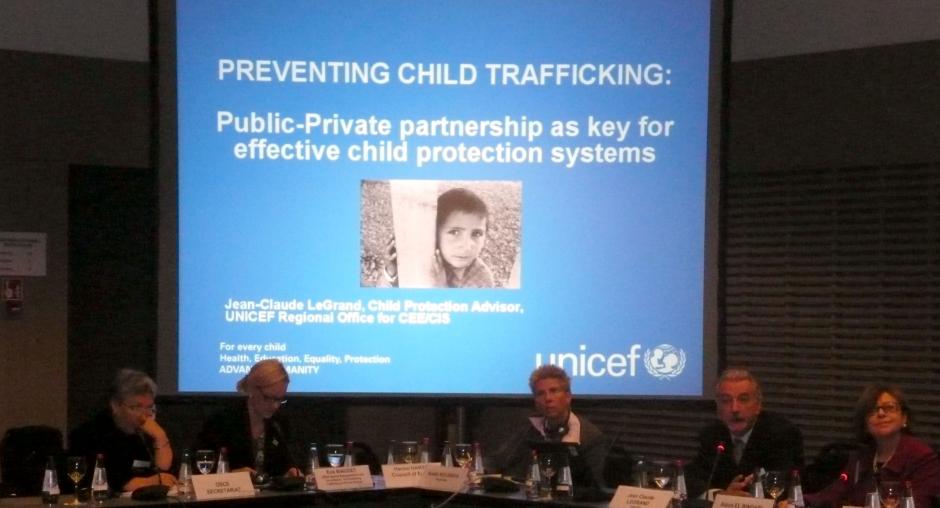OSCE conference in Vilnius calls for zero tolerance, more co-operation to fight human trafficking

VILNIUS, 26 October 2007 - Co-ordinated and concerted action from governments, the media and other actors is urgently needed to curb human trafficking, agreed more than 150 participants from OSCE participating States at an OSCE conference in Vilnius that ends today.
"We can create an atmosphere of zero tolerance for exploitation, discrimination and violence against the weakest of the society," said Eva Biaudet, Special Representative and Co-ordinator for Combating Trafficking in Human Beings. "The media has a tremendous impact on the population and our countries' policies."
Spanish Ambassador Fidel Lopez, who represented the OSCE Chairmanship at the conference, added: "Spain, as holder of the OSCE Chairmanship, understands that the fight against trafficking in human beings must continue to be a priority for the Organization, both because of the threat trafficking poses to human security and because of the OSCE's own ability to contribute to its eradication. We hope that the Ministerial Council to be held in Madrid will adopt a decision that would symbolize a new level of our commitment."
The two-day regional conference in Vilnius was jointly organized by the OSCE, the Lithuanian Government and the United Nations Office on Drugs and Crime as part of the United Nations Global Initiative to Fight Human Trafficking (UN.GIFT).
"Lithuania joins the UN.GIFT goals in this conference with a clear understanding that co-operation is the main solution for combating human trafficking" said Lithuanian Interior Minister Raimondas Sukys.
"This event expands our regional co-operation. We are facing a global problem that can only be reduced by multilateral co-operation since there are no borders for this crime. Human trafficking is one of our priorities as the report presented by the Lithuanian Human Rights League in respect to the situation in my country shows."
The conference emphasized the role of the media in helping to prevent modern slavery and encouraged other non-traditional stakeholders - the business community and educational institutions - to join efforts to raise public awareness. Reaching the most vulnerable group for human trafficking, those between 18 and 25 years of age, was identified as one of the biggest challenges.
"Our key partner in this endeavour is the media. We can improve outreach not by pressure and power, but through education and the promotion of human rights values and principles in all social strata. The media has the resources to reach people, we have the information they can disseminate," said Biaudet.
